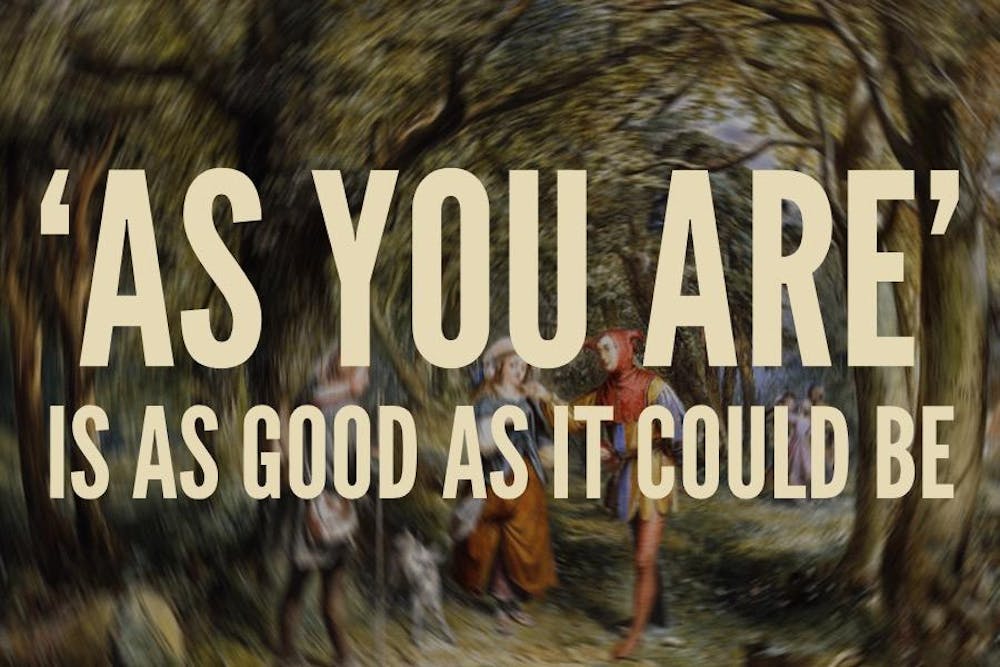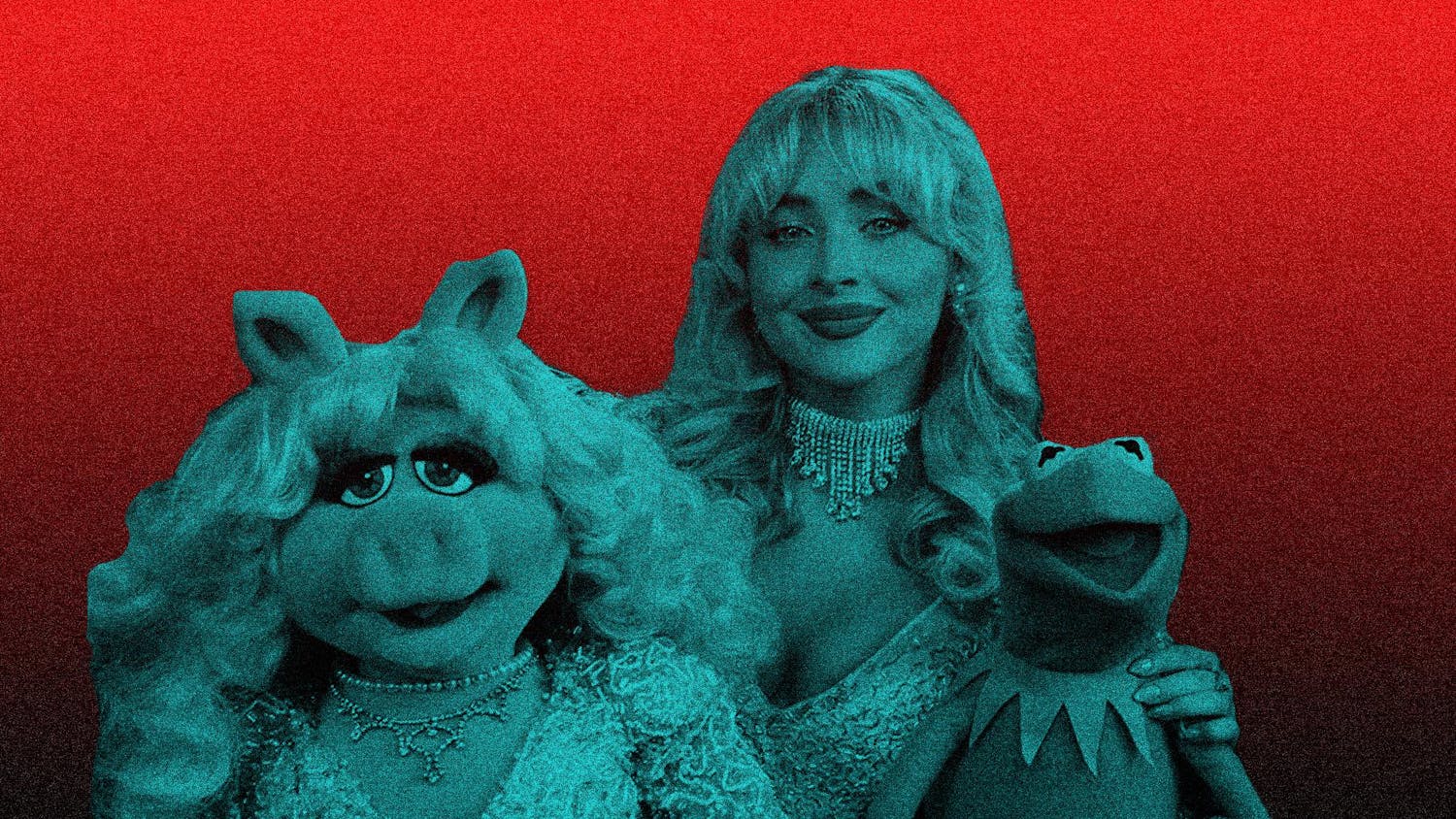The plague gave us Boccaccio’s “The Decameron,” tuberculosis gave us Mann’s “The Magic Mountain,” HIV/AIDS gave us “Angels in America,” yet COVID-19 awaits its masterpiece. “As You Are” (a play produced by the Department of Film, Television, and Theatre running at the DeBartolo Performing Arts Center from Feb. 28 to Mar. 3) steps up to the plate but — despite the best efforts of cast and crew — strikes out.
Overall, this play’s problem is a shaky foundation: the script. Otherwise, the acting and design are often very good, save for a few tiny foibles. For instance, two members of the cast had to smoke cigarettes, and reader, they wielded them like they had never seen a dart in their lives! Similarly, in one of the last scenes, a player poured a glass of stage-tequila so large and drank it so fast that in real life, it probably would’ve knocked her over. Meanwhile, Eny Ramirez, in her portrayal of Celia, delivered a remarkably convincing performance, skillfully handling her glass of wine with believable finesse.
If someone forced me to critique the acting past nitpicks of that sort, I’d be hard-pressed. There were a couple lines, though, where the cast shot for “serious” and “deep” but would’ve been better off going for laughs. One of the most successful sequences in the play (a Zoom graduation followed by some dialogue about a turtle and then a shocking confession) worked precisely because it was funny — funny enough to change my mind about a character I had found too dour, even.
The design was also well done, the set attractive and the sound effective. Still, I generally dislike black box theaters and theater in the round — actors popping out from curtains and walls without warning. Frankly, it makes me feel scattered.
The script, however, is an entirely different story from the acting and design. It’s terminally play-y. It’s chock-full of cliches, like the way it repeatedly introduces tragic backstories for its characters out of nowhere with the same melodramatic past tense: “I had a brother,” “It’s a song my wife used to sing,” “He was an accountant,” etc.
As a rule, the characters are much too profound much too soon. Right out of the gate, they declare things like “I’m old, Audrey, I hate everything,” “Empathy doesn’t keep the lights on” and “I love color.” Meanwhile, they stare wistfully into the audience as if they’ve said something immensely significant. But these truisms don’t land because we’ve hardly met these people, so we have no reason to care about what they’re saying and no frame of reference to discern their meaning.
If a stranger asked me a question like “What are your vices?” or “What made you?” or “Have you ever loved?” — as happens in this show — I think I’d call the police. Also, the text of the play unironically references its own title. (I had to stifle a laugh.)
The work stinks of liberalism, too. At one point, a romance plot line stops dead in its tracks simply because of a seven-year age gap between two adults, and for some reason, the characters go out of their way to denigrate great works of classic fiction: one character says they hate “The Old Man and the Sea,” another David Foster Wallace, another “King Lear,” yet another J.D. Salinger.
Nevertheless, as we got to know the characters, there were some touching moments. The parallel dialogues about rent between Ros and Celia, and Orlando and Oliver, constituted one of the play's most compelling scenes. Orlando’s monologue on the death of his and Oliver’s brother was also beautifully written and movingly delivered. Audrey (played by Logan Schlitt) was fun and charismatic, capable of being serious without being pretentious. Phoebe (played by Makena Mwathi) was down-to-earth and naturalistic, a huge help to a script with its head in the clouds.
All in all, “As You Are” tries to retell Shakespeare’s “As You Like It” in a more modern and relatable way, yet it’s so clumsy that the original — penned in 1599 — feels more present and immediate.










